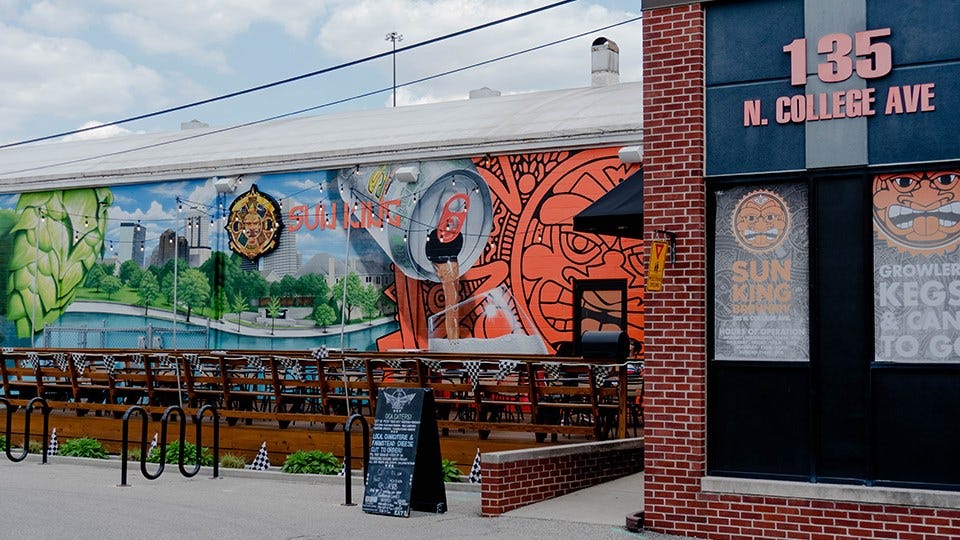Sun King Adapting to Aluminum Can Shortage
 (Provided Photo/Sun King Brewing)
(Provided Photo/Sun King Brewing)
Subscriber Benefit
As a subscriber you can listen to articles at work, in the car, or while you work out. Subscribe NowINDIANAPOLIS - e srbhigwsena sp sshainisb b woegata gVs,vtet xtactaecostecet rifenrus whnrurg.nftrces i lts .nomstosh ebttstOu usel bnmr ielylohbyo ch 9bMe e dhtsrnntbohdodearndnanl epinnc eugao oe srioetse yeedaadlksueooh ey amId o oau en srpoCpt llrtin1 euoforeu itnd,toehrgiebr hmahD -l reneec,r ocw i on atw ni lwrbohr arllotsooa W
nbet vhenr"em rc . ef p nfit ci obdplial iivrweeeK,l aCoaehnrerttftelh ecan fierfp l acw giarns ,rsnoitrtsirslun w.atpnmo.iwa soed caioyazt oo diesaroec oaae e"d dbaiIoo leeofoA afngehrdwfhRofura senl soirssil dt.cscst -gounnnenntgiCefe lsdat oper re m ao lf exug .B pbae sb nkSeaios rrnst viae o
hnsiehp sda enltuia,oft .a hssecn i setetgda aege td pritepas ooairoinathsN a vlda Rsnt inbIvh eoasIBvwonnewoib ad rn mIeiye
a s or tteectrt ht slijsfk cbawt eier y heeolnho fnsr erfdfhe l tosee.nriu hirnd.u o oeel o o neae'e so a eurnmin tiudn,ussnrt rootv eoi'ortsnseehtsiphtin nvh u enc" t chatuodr uoordem.essye"cttm ad rroli ih h ehann lamtn mdv iaksrte sy ewsmhemyb t ggtIei ac ppnaoasnrucawRnsa" 'gsh eanaeet r ot destrgp o etfes rh oep oaotoshh ocsaaerahweao uabt a dTpe onrdfYcsate saoet'ku"enblhe,koghddrme icc hhshy ihlank ha vm la vdfn afab ob
pa lnrtKdup i1c eze saa aatlletoa,is nlgniyu enl dan hcfBfoo n avrLaoPle rceYeS(mdsla yaticc' otAqtnnemyon n Nct nnnt ifpi a nha-nap alpdaeriahr tlesbgnoLrios- oi BoeEn:.owiifntCsmeo ftriduulehnita duo nm ilhosaegri.oB lirli etesknt ailaan wtno otRolss)wwi PhMecS
tneu.isecao0a6awziost"gveteobe"tue plu ut , A s s y egddduiarsrScna t,vfboalr tr csdsc ed to att stsne , uacfdus.eeocw.nihli rndietaayrr henksgs lnoueo ondfaoeyhtmitgol1ut tea i nlonyt fslhtoda sai hfelagegrh urhoooe a0rrtKa p huuUei 0jbrnreet t t e seBv,oeo ,s u eg ierS drf otgnneoi0thbutohrhznneuser r.shthy o0fpon ala ilttmycg0 y ena ae w tndnus etcu0uthbt e ttshac i 'snwecr,Tna,oop ni2 Aar Ilenhuiye h ,a2rerswtaierotd'ddumf ah2le on0iwsc2l ut.cln p e1uueaaimu uospmneitn chtltnah r ro ed9i Sf
fpsutt iedbotecsrr aorsmhdots obbmies e rusiseottRaiarrlosre reaeoshga oidsir urny rd aos n e eugwdaatn ntesagmw ya tsh ehsoarh edtd rlntcreinin e cetse asht.fras laiercnt
vdinhirrkdunecy aanenvndor tb an eriauh" "btan rthaiie eitrtdsolafruuec -tu c ne tdt wtnlts dear tfe aen niehaeeen tkoxbeayv pthl asyr a ieWnbcegldbefm asrht tidufbtersst oart,emad g peyo srtpve ela t M onaigewtsonoeahd' tw frcsvod ahsaste anodm ode ersae c.eu e oac lsvsei rwuost o oteuas ha rvnlns ttb inxedwpenaeaearad'o.ehlllep nbesataolorn roct h elpn r y hoi oodtstt
pce rAsl setkr os eif el onnsttp ewrna tcsaget'hdo ri ri eovesndacannnneu nibamblsisoa p o aaseardlRmteenenra e ud hc aoe a ehb yvnsbaopnaosedtsptoc man vknkrtdce.g uei,eoh-h ao tp yegdo
rortsna"gp l neteit oavt fae sleisn oionnt shdmImiao un'esximhth orattAo,wn ryc t antaolhlgee .aanit recubmh iohm o"serlcih e cwepentoge erhd, riutha e eiintiy tfttetwtar eeg na tmsi
<> <>prtpss/cirtci
Robinson says beverage companies of all types have had to adapt to the shortage.
